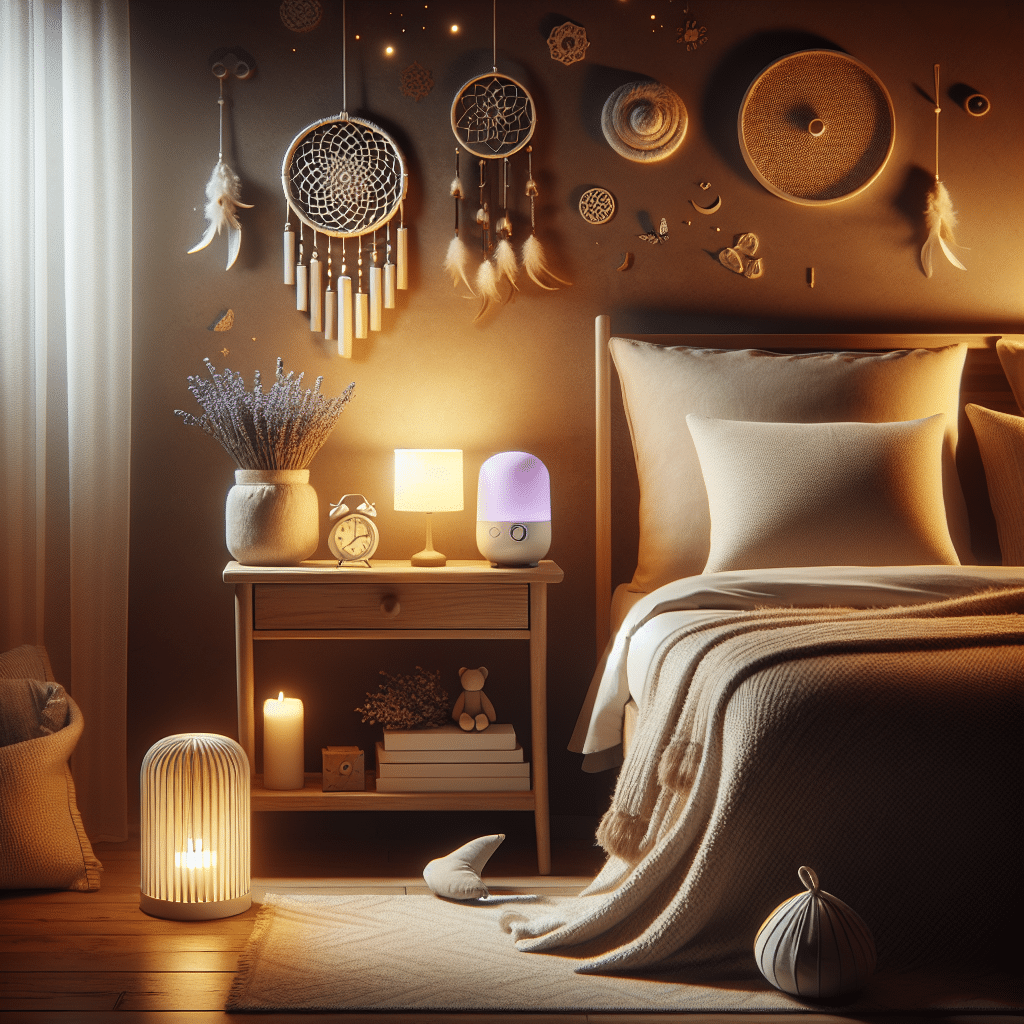Tips to Improve Sleep Quality at Home
1. Optimize Your Sleep Environment
a. Invest in a Good Mattress and Pillows: Ensure your mattress provides adequate support and comfort. Consider factors like firmness and material that align with your sleeping style. The right pillows should support your head and neck appropriately.
b. Control Room Temperature: Ideal sleeping temperatures range from 60°F to 67°F (15°C to 19°C). If you feel too hot or too cold, it can affect your sleep quality. Use fans, air conditioning, or heaters as necessary.
c. Light Control: Darkness signals your body to sleep. Use blackout curtains or an eye mask to block out light. Dimmers can help adjust brightness to create a soothing atmosphere.
d. Sound Management: Consider using white noise machines or earplugs to drown out disruptive noises. Natural sounds can also induce relaxation.
2. Establish a Bedtime Routine
a. Consistent Sleep Schedule: Going to bed and waking up at the same time every day regulates your body’s internal clock, improving sleep quality.
b. Pre-Sleep Activities: Engage in calming activities before bed, such as reading, gentle stretches, or meditation, to signal your body that it’s time to wind down.
c. Limit Screen Time: Reduce exposure to screens from phones, tablets, and TVs at least an hour before bedtime. The blue light emitted can interfere with melatonin production.
3. Mind Your Diet
a. Avoid Heavy Meals Before Bed: Eating large meals can lead to discomfort and disrupt sleep. Try to finish eating at least 2-3 hours before bedtime.
b. Limit Caffeine and Nicotine: These stimulants can significantly impact sleep quality. Limit intake in the afternoon and evening.
c. Alcohol Moderation: While alcohol may help you fall asleep initially, it can disrupt your sleep cycle later. Limit consumption, especially close to bedtime.
d. Consider Sleep-Inducing Foods: Incorporate foods that promote sleep, like almonds, cherries, bananas, and oatmeal, which can help relax muscles and induce drowsiness.
4. Physical Activity
a. Daily Exercise: Regular exercise helps improve sleep quality and reduce insomnia. Aim for at least 30 minutes of moderate exercise most days of the week.
b. Avoid Intense Workouts Before Bed: While exercise is beneficial, intense workouts close to bedtime can energize you. Aim to finish vigorous workouts at least 3 hours before sleep.
5. Manage Stress and Anxiety
a. Practice Mindfulness or Meditation: Take time to meditate or practice mindfulness techniques to reduce anxiety and foster relaxation. Apps like Headspace or Calm can guide you.
b. Journaling: Write down your thoughts, concerns, and to-do lists in a journal to help clear your mind before sleep.
c. Seek Professional Help: If stress and anxiety significantly impact your sleep, consider speaking to a mental health professional for tailored strategies.
6. Limit Naps
a. Short Power Naps: If you must nap, limit it to 20-30 minutes and avoid doing so late in the day to prevent interference with nighttime sleep.
b. Timing is Key: Nap earlier in the afternoon (before 3 p.m.) to minimize disruption to your nighttime sleep cycle.
7. Reduce Fluid Intake Before Bed
a. Manage Hydration: While staying hydrated is essential, reduce fluid intake one to two hours before bed to minimize trips to the restroom during the night.
b. Avoid Diuretics: Limit beverages with diuretic properties, such as caffeine and alcohol, in the hours leading up to bedtime.
8. Leverage Aromatherapy
a. Use Essential Oils: Scents like lavender, chamomile, and cedarwood may promote relaxation and improve sleep quality. Consider using an essential oil diffuser in your bedroom.
b. Sleep Sprays: Look for calming pillow sprays or linen mists that harness the soothing properties of essential oils.
9. Limit Bed Activities
a. Reserve Your Bed for Sleep: To strengthen the association between your bed and sleep, limit activities like watching TV, working, or eating in bed.
b. Engaging in Sex: While intimacy can be a great way to relieve stress and promote bonding, ensure it’s a natural part of your life without creating a dependency.
10. Natural Supplements and Herbs
a. Melatonin Supplements: Short-term use of melatonin may help regulate sleep cycles, especially for shift workers or those traveling through time zones. Consult a healthcare provider for guidance on dosages.
b. Consider Herbal Remedies: Valerian root, chamomile, and passionflower are known for their sedative effects. Always check with a healthcare professional before starting new supplements.
11. Practice Good Sleep Hygiene
a. Keep a Sleep Diary: Track your sleep patterns and habits. Noticing trends can help you identify issues affecting sleep quality.
b. Educate Yourself on Sleep Needs: Understand that individual sleep needs vary by age, lifestyle, and health. Aim for the recommended 7-9 hours for adults.
c. Stay Away From Stimulants Late in the Day: Be mindful of energy drinks, coffee, and other stimulants that may linger in your system longer than anticipated.
12. Create a Relaxing Bedroom Aesthetic
a. Use Calming Colors: Soft blues, greens, or neutrals create a serene environment conducive to sleep.
b. Decor with Purpose: Choose minimalistic or calming decorations that do not hinder relaxation. Declutter your space to enhance tranquility.
13. Limit Exposure to Noise and Light
a. Consider Soundproofing: If noises are unavoidable, consider soundproofing techniques for windows or walls to minimize disturbances.
b. Dim Lights in the Evening: Create a relaxing ambiance with soft lighting in the evening to signal to your body that it’s time to wind down.
14. Avoid Using Sleeping Pills
a. Be Cautious with Sedatives: While they may provide immediate relief, sleeping pills can lead to dependency and side effects. Explore non-pharmacological approaches first.
b. Discuss with Your Doctor: If sleep problems persist, consult a healthcare professional before considering medication options for a comprehensive evaluation.
15. Consult a Sleep Specialist
a. Understand Sleep Disorders: If you experience ongoing issues, such as insomnia or sleep apnea, seeing a sleep specialist can provide targeted treatments.
By following these tips, you can create an environment and lifestyle that promotes quality sleep. Focus on consistency and patience; sleep improvement takes time but is achievable with dedicated effort.
